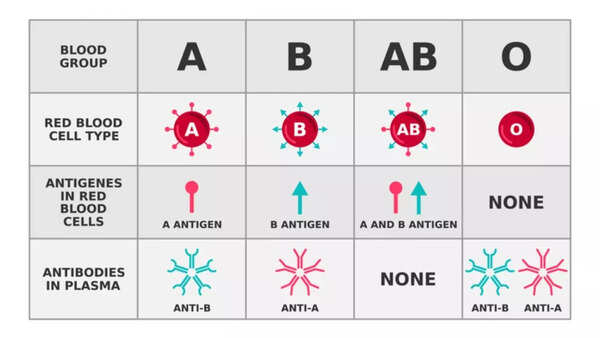Context:
A new blood group antigen, CRIB, was discovered in a 38-year-old woman from Karnataka after her O Rh+ blood was found incompatible with all donor units before surgery. The case was escalated to UK’s IBGRL, confirming the antigen. This marks a major advance in rare blood group research and transfusion medicine.
Case Background:
- The case began with a 38-year-old woman from Karnataka who was admitted for cardiac surgery. She was initially identified as having the O Rh+ blood group, which is the most common and considered a universal donor type for red blood cells.
- However, when doctors prepared for transfusion, none of the O-positive blood units were compatible and the patient’s blood showed panreactivity — it reacted with all available donor samples.
These results indicated the presence of an unidentified antigen in the patient’s blood, making her case highly unusual and medically significant. Recognising the potential of a rare blood type, the case was referred to specialised laboratories for deeper investigation:
· Stage 1: Advanced serological testing at a reference lab in Bangalore confirmed the presence of an unidentified antigen.
· Stage 2: The blood samples were sent to the International Blood Group Reference Laboratory (IBGRL) in the UK for molecular analysis.
After ten months of genetic and molecular research, the IBGRL confirmed the discovery of a previously unknown antigen belonging to the Cromer (CR) blood group system.
Key highlights of Discovery:
· The antigen was named CRIB, with "CR" representing Cromer and "IB" standing for India, Bangalore.
· This was officially announced at the 35th Regional Congress of the International Society of Blood Transfusion (ISBT) held in Milan in June 2025.
· This is the first-ever confirmed case of CRIB antigen globally.
Significance of the Discovery
1. Improved Safety in Transfusions and Surgeries
· Rare blood types can lead to transfusion mismatches, triggering severe reactions.
· Identifying rare antigens like CRIB enhances pre-transfusion testing protocols.
· It ensures better donor-recipient matching, especially during emergency surgeries.
2. Support for Rare Donor Registries
To support patients with rare or unidentified blood types:
· A Rare Donor Registry has been launched in collaboration with:
o Karnataka State Blood Transfusion Council
o Indian Council of Medical Research (ICMR)
o International Society of Blood Transfusion
3. Boost to Indian Medical Research
India has previously contributed to rare blood group research with documented cases such as:
· Rh null
· In b negative
The CRIB discovery strengthens India’s position in global immunohematology and reinforces its research capabilities in advanced medical science.
Conclusion:
The discovery of the CRIB antigen is a landmark achievement in transfusion medicine. It highlights the importance of advanced diagnostic tools and the need for continuous research in blood group systems. For a country as diverse as India, building robust rare donor networks and encouraging voluntary donations are crucial. This discovery will influence future protocols in surgeries, emergency care, and organ transplantation, saving lives both domestically and internationally.







